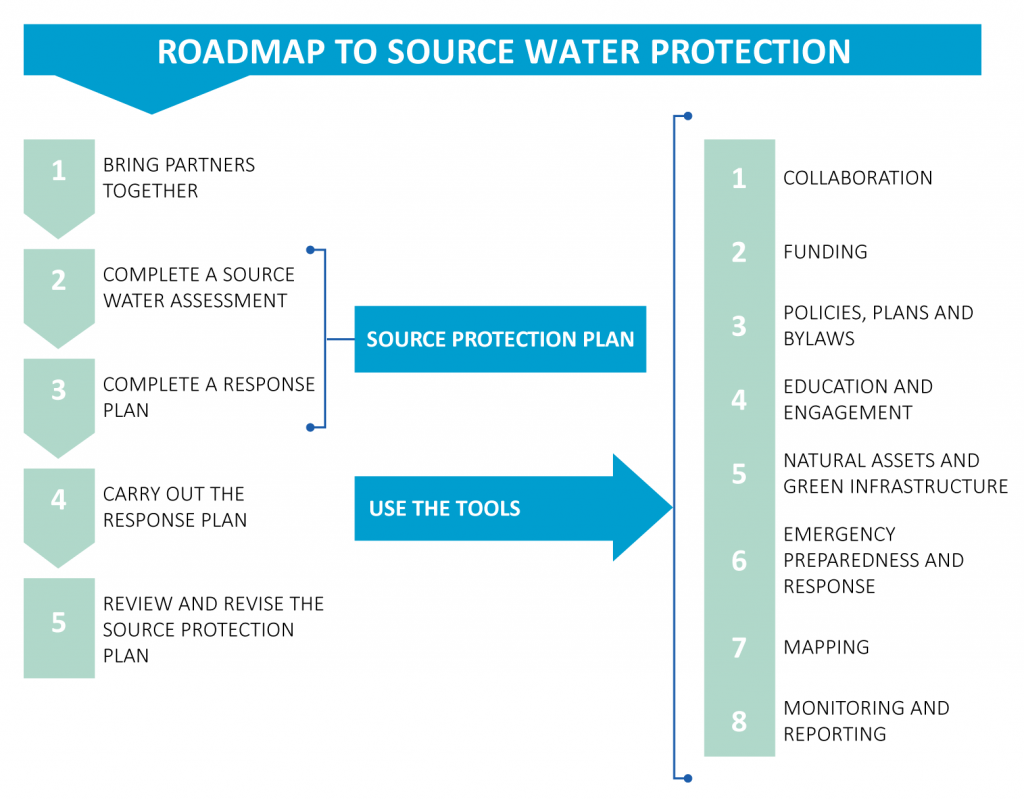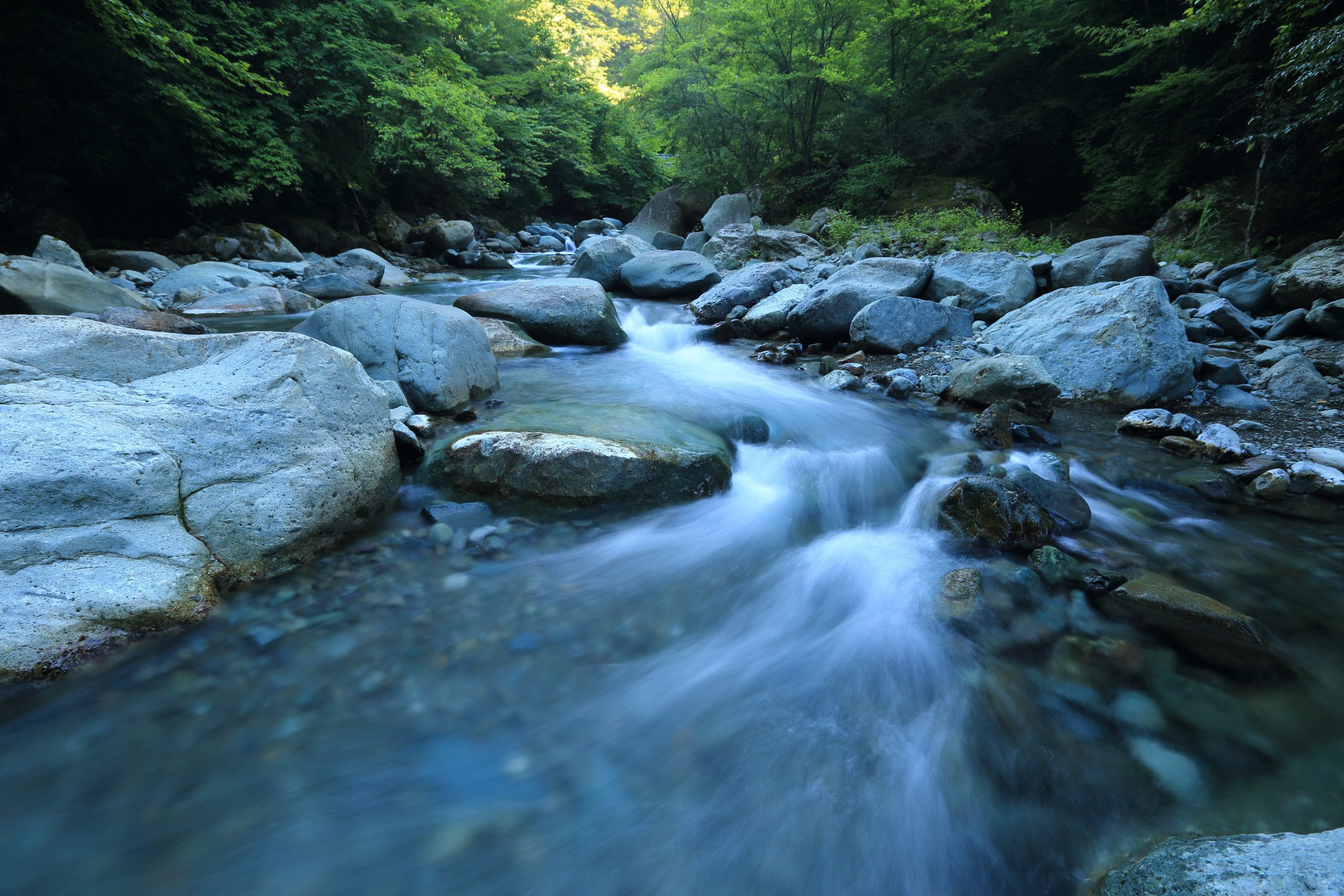Good news – you don’t have to read the whole toolkit!
Each section is stand-alone. Use this guide to find the sections that interest you.
Guide to the Source Water Protection Toolkit
If You Are …
A water supplier:
Start at the ROADMAP to Source Water Protection and consult TOOLS to protect drinking water sources.
A planner:
Start at TOOL 3 – Policies, plans, and bylaws to learn about the regulatory tools you can use to protect drinking water.
An elected official:
Start with Regulatory framework and Economic benefits of source water protection to learn about your responsibilities for source water protection and why you should buy in – the economics of why it makes sense to protect source water.
If You Need to …
Complete a source water assessment:
Start at the ROADMAP to Source Water Protection and follow the 5 main steps to develop and carry out a source protection plan.
Build a response plan:
Consult the TOOLS for best practices and read CASE STUDIES to help build your plan.
Improve your plan:
Consult the TOOLS for best practices and read CASE STUDIES to improve your plan.
If You Lack …
Finances:
Start at TOOL 2 – Funding to generate short- and long-term funding.
Capacity or knowledge:
Start at TOOL 1 – Collaboration to build relationships, share resources and workloads, TOOL 4 – Education and engagement to leverage community assets to alleviate resource gaps, and TOOL 8 – Monitoring and reporting to collect, find, and use data
Political or community support:
Start with TOOL 4 – Education and engagement and Economic benefits of source water protection to inform audiences on the economic value and cumulative benefits of source protection.
If You Need to …
Overcome jurisdictional barriers:
Start at TOOL 1 – Collaboration to build a list of stakeholders and authorities to work with, and best practices for how to do it.
Understand jurisdiction:
Start at TOOL 3 – Policies, plans and bylaws and consult Regulatory framework for a breakdown of responsibilities and a list of Acts that involve drinking water protection.
Improve communication, coordination, and collaboration:
Start at TOOL 1 – Collaboration and TOOL 4 – Education and engagement for tips on connecting with audiences, and BMPs on how to advance source protection despite varying interests.
If You Want to …
Read success stories:
See CASE STUDIES highlighting practical examples for each Tool.
View webinars:
Go to WEBINARS for a list of available presentations on source water protection.
Figure 1 will also help you navigate through the toolkit.





